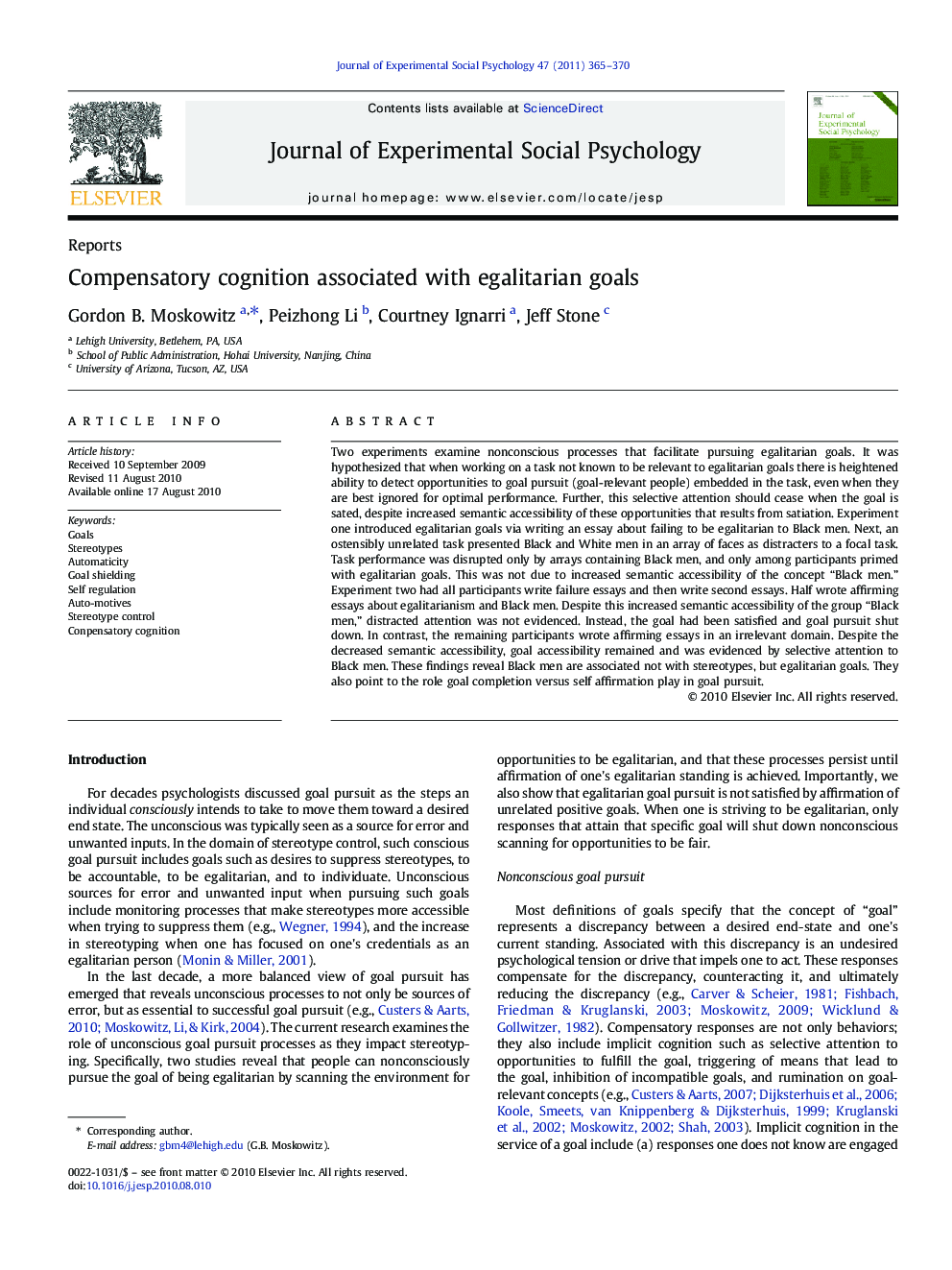| کد مقاله | کد نشریه | سال انتشار | مقاله انگلیسی | نسخه تمام متن |
|---|---|---|---|---|
| 10468653 | 926469 | 2011 | 6 صفحه PDF | دانلود رایگان |
عنوان انگلیسی مقاله ISI
Compensatory cognition associated with egalitarian goals
دانلود مقاله + سفارش ترجمه
دانلود مقاله ISI انگلیسی
رایگان برای ایرانیان
کلمات کلیدی
موضوعات مرتبط
علوم زیستی و بیوفناوری
علم عصب شناسی
علوم اعصاب رفتاری
پیش نمایش صفحه اول مقاله

چکیده انگلیسی
Two experiments examine nonconscious processes that facilitate pursuing egalitarian goals. It was hypothesized that when working on a task not known to be relevant to egalitarian goals there is heightened ability to detect opportunities to goal pursuit (goal-relevant people) embedded in the task, even when they are best ignored for optimal performance. Further, this selective attention should cease when the goal is sated, despite increased semantic accessibility of these opportunities that results from satiation. Experiment one introduced egalitarian goals via writing an essay about failing to be egalitarian to Black men. Next, an ostensibly unrelated task presented Black and White men in an array of faces as distracters to a focal task. Task performance was disrupted only by arrays containing Black men, and only among participants primed with egalitarian goals. This was not due to increased semantic accessibility of the concept “Black men.” Experiment two had all participants write failure essays and then write second essays. Half wrote affirming essays about egalitarianism and Black men. Despite this increased semantic accessibility of the group “Black men,” distracted attention was not evidenced. Instead, the goal had been satisfied and goal pursuit shut down. In contrast, the remaining participants wrote affirming essays in an irrelevant domain. Despite the decreased semantic accessibility, goal accessibility remained and was evidenced by selective attention to Black men. These findings reveal Black men are associated not with stereotypes, but egalitarian goals. They also point to the role goal completion versus self affirmation play in goal pursuit.
ناشر
Database: Elsevier - ScienceDirect (ساینس دایرکت)
Journal: Journal of Experimental Social Psychology - Volume 47, Issue 2, March 2011, Pages 365-370
Journal: Journal of Experimental Social Psychology - Volume 47, Issue 2, March 2011, Pages 365-370
نویسندگان
Gordon B. Moskowitz, Peizhong Li, Courtney Ignarri, Jeff Stone,